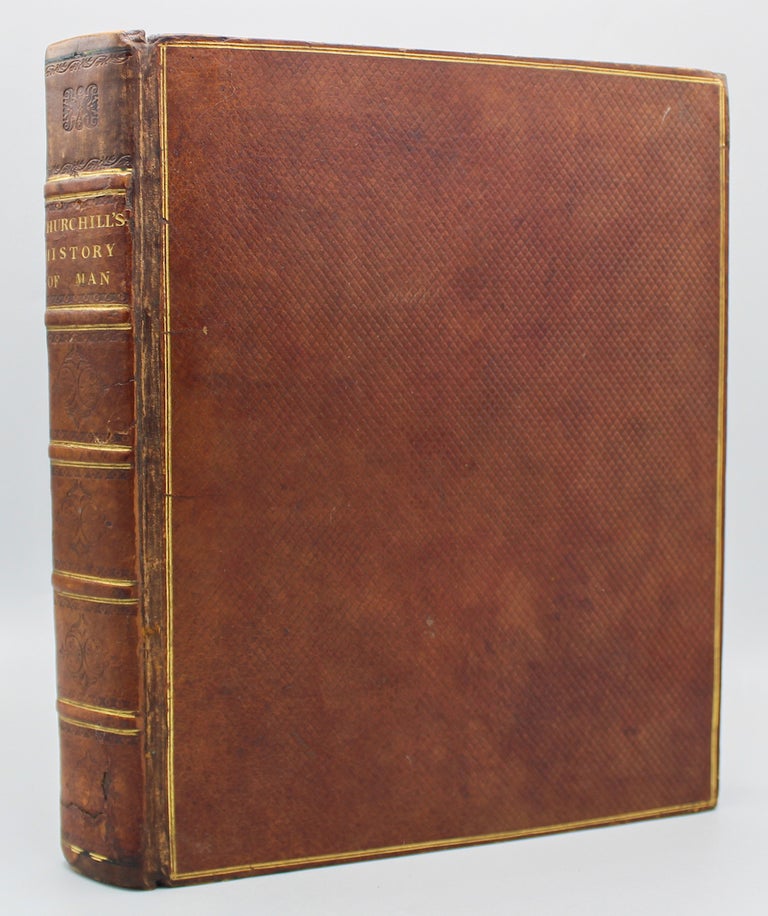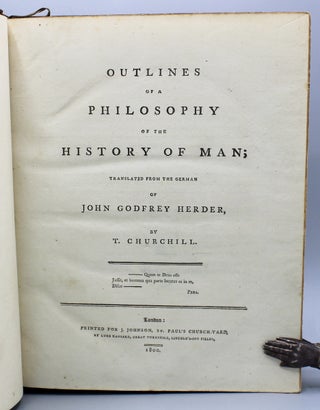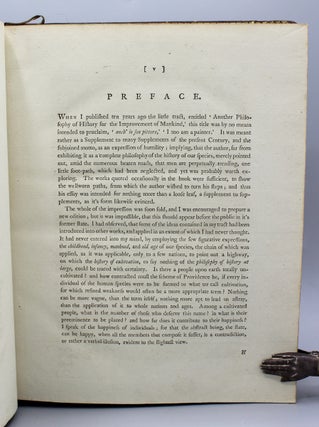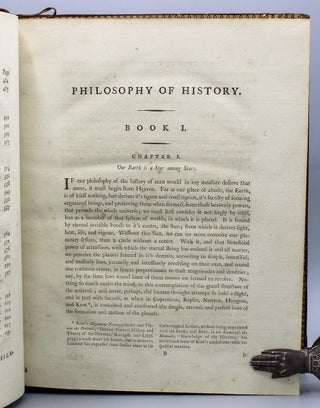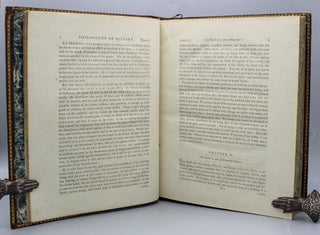Outlines of a Philosophy of the History of Man; Translated from the German of John Godfrey Herder, by T. Churchill.
London: Printed for J. Johnson…, 1800. First edition in English of Herder’s monumental work on historiography, Ideen zur Philosophie der Geschichte der Menschheit, in which he outlines astronomy, geomorphology, plant and animal life and the special characteristics of the human species, as well as the influence of geography and climate on history. A very good, crisp copy. Contemporary diced calf, professional rebacked with old spine laid down. Gilt spine with old brown morocco label stating "Churchill's History of Man." Marbled edges and endpapers, gilt inner dentelles. Quarto. xvi, 632, [12] pp. Item #12092
Johann Gottfried Herder (1744-1803) studied under Kant at Königsberg. Another major influence was Goethe, who in 1776 helped him to obtain the post of court chaplain to Weimar, which led to his appointment as head of the Lutheran state church of the duchy. He wrote several significant works. His treatise on language, Abhandlung über den Ursprung der Sprache (1772) is listed in Printing and the Mind of Man. But Ideen zur Philosophie der Geschichte der Menschheit is genereally considered his masterpiece. “Notwithstanding his important contributions to other fields, it is for his philosophy of history that Herder is chiefly known and remembered today…[The present work] is a curious and in some ways contradictory work. On one hand, it reflects certain dominant Enlightenment interests; theological and progressivist notions of historical development appear in it, and Herder showed respect for such humanistic ideals as freedom and social improvement. At the same time its chief interest lies precisely in the manner in which it departs from various prevailing trends of Enlightenment thought. Not only does it exhibit a range and erudition that, considering the period of writing, is astonishing…it is also packed with original and imaginative suggestions for the reinterpretation of the human past and contains a great deal of trenchant criticism of the historiography of the time…Herder’s conception of history exercised an important influence upon the course taken by subsequent historiography. Furthermore, some of his ideas are to be found, reformulated and elaborated, in later speculative systems and theories of the kind propounded by Hegel and Oswald Spengler…” (Patrick Gardner in Encyclopedia of Philosophy) “…he helped to found the historical school in literature and science, for it was only after an excessive and sentimental interest in primitive human culture had been awakened that this subject would receive the amount of attention which was requisite for the genetic explanation of later developments. This historical idea was carried by Herder into the regions of poetry, art, religion, language, and finally into human culture as a whole. It colours all his writings and is intimately connected with some of the most characteristic attributes of his mind, a quick sympathetic imagination, a fine feeling for local differences, and a scientific instinct for seizing the sequences of cause and effect” (Encyclopaedia Britannica, 13th edition).
See also Thompson, History of Historical Writing, II, pp. 134-5.
Price: $3,500.00



